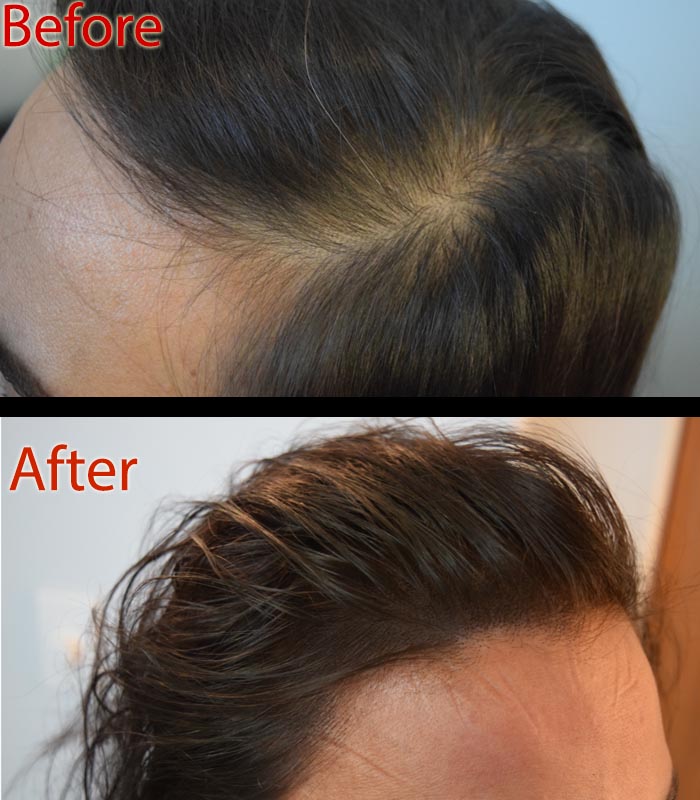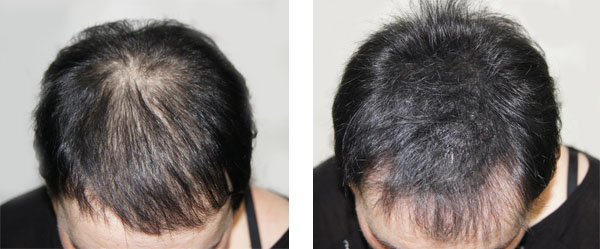Is there a connection between menopause and hair loss? Well, your hair is your best asset as a woman, but the sight of hair loss is never a pleasing one. In fact, hair shedding is quite common for menopausal women. Does that mean you have to live with hair thinning during menopause? Is there any solution to hair shedding? Can SMP for hair thinning work?
Menopause and Hair Loss in Women
Hair loss during menopause is often the result of hormonal imbalance or a reduction in estrogen and progesterone. Since these hormones are necessary for faster hair growth, any disturbance in their cycle can cause hair problems for women. When estrogen and progesterone are in full swing, a woman experiences the best hair growth. But as soon as the levels of these hormones fall during menopause, hair growth slows down. The result is hair shedding and hair thinning as follicles continue to shrink.
Physical and emotional stress is often blamed for pushing follicles into the resting phase. As a result, there could be a huge amount of hair loss. Many consider SMP for hair thinning as a permanent solution while some focus on medications that may or may not work. But before that let’s explore the reason for hair loss in menopause.
Hormonal Disturbance
Yes, there is a connection between menopause and hair loss. With a drop in the levels of estrogen and progesterone during menopause, male hormonal levels rise. This results in slower growth of hair. As follicles shrink, they result in weaker roots and loss of hair. Hormonal imbalance also results in mood swings, hot flashes, sweating, among other symptoms. A doctor may prescribe medications that might rein in hair loss. But there is no guarantee of it.
Menopausal hair loss might also result from a genetic predisposition, nutritional deficiencies, and high levels of stress. Women should focus on living a healthy life with clean eating habits and an active lifestyle to reduce the risk of postmenopausal effects, weight gain, and mood swings, an active lifestyle is essential to maintaining hormonal balance.
While these healthy habits can help reduce the effects of menopause, they take a consistent approach. You ought to follow a healthy lifestyle religiously to derive maximum benefits and prevent hair loss.
The SMP for Hair Thinning Solution
Hair thinning in menopause is a common occurrence and a majority of women undergo the pain of hair loss. True, the sight of hair shedding affects women physically and disturbs them emotionally too.
While you can focus on a healthy dietary and activity regime, try looking for alternatives that could offer a permanent solution to the problem.
Scalp micropigmentation is surely one. SMP for hair thinning can not prevent hair loss, but it can hide those patches of lost hair or baldness. Women with thinning hair problems during menopause should trust the #1 scalp artist for the treatment. The most skilled SMP practitioner is aware of the emotional disturbance a woman undergoes during menopause and can help her restore her looks and self-esteem.
Connect with the top scalp artists in Phoenix today at DermiMatch and get set to change your life for the better. Are you ready?


